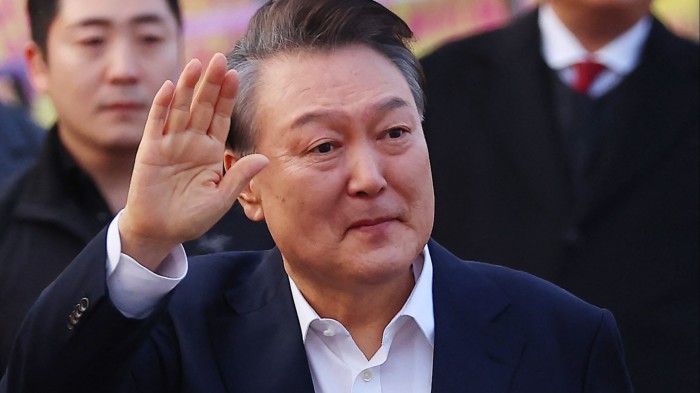Unlock the Editor’s Digest for free
Roula Khalaf, Editor of the FT, selects her favourite stories in this weekly newsletter.
South Korea’s president Yoon Suk Yeol has been removed from office, four months after his shortlived attempt to impose martial law sparked a prolonged political crisis.
The Constitutional Court on Friday announced in a unanimous verdict that it would uphold parliament’s vote to impeach Yoon last year over his failed power grab, stripping him of office and ending his presidency less than three years into his five-year term.
A presidential election will now be held within 60 days.
The hardline former prosecutor’s move to impose martial law in December triggered South Korea’s most severe political crisis since its transition to democracy in the late 1980s, leading to his suspension and subsequent arrest on a criminal charge of insurrection.
Yoon told the court in February that the martial law decree and his decision to deploy troops to storm the National Assembly had been necessary to “alert the public” to the “wickedness” of the leftwing opposition.
But announcing the court’s ruling on Friday morning, acting chief justice Moon Hyung-bae said Yoon had “violated the basic principles of a democratic state”.
“The defendant mobilised military and police forces to dismantle the authority of constitutional institutions and infringed upon the fundamental rights of the people,” said Moon.
“In doing so, he abandoned his duty to uphold the constitution and gravely betrayed the trust of the Korean people.”
The landmark verdict, which marks the second time a president has been impeached and removed from office in South Korea in under a decade, comes as Asia’s fourth-largest economy wrestles with sluggish growth and deepening political polarisation.
The country is also braced for the economic impact of US President Donald Trump’s protectionist trade policies.
Read the full article here




